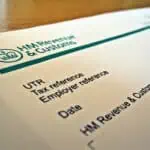Small Business Owner – Buying a Company Car
Reading Time:
Company cars remain a popular employee benefit. Purchasing a company car can be a significant investment for any business. If you are looking into purchasing or using a current vehicle as a company car, this may be because your mileage is increasing, and you have seen costs on tax and fuel going up. Claiming a vehicle as a company expense may be the right step to take.
HMRC has recently introduced a generous company car tax scheme to encourage small business owners to do more for the environment. They reward the use of vehicles that emit a reduced amount of CO2.
There are many pros and cons for the various schemes available for leasing or buying a company car. This article looks at the options available for small business owners.

What is leasing?
Many businesses choose to lease vehicles for their business, and it can be a more cost-effective alternative to buying a car outright, especially when you are starting up. With leasing, you make fixed monthly payments, and at the end of the lease period, you may have the opportunity to extend the lease agreement or start a new one, but you will not own the vehicle.
Pros and Cons of a Business Car Lease
As a small business owner there are many pros and cons to buying a car using a business car lease. We shall look at both the cons and pros to ensure that you understand how a business car lease works before signing up to it.
Pros of a Business Car Lease

Most business owners may wish to drive a luxury vehicle to make an excellent first impression when meeting prospective clients and business partners. These, however, are probably too expensive to purchase outright. Instead, leasing such a vehicle means lower maintenance and road tax costs (sometimes included in the lease) and would be preferable to the higher monthly payments if purchased through a loan.
A business car lease will take the total amount of the car that you purchase, and then it will factor in the car’s depreciation for the entire period of the lease. The lease covers aspects such as the period of the entire lease, total miles to be covered, and the car category. It is advised to take out as long a lease as possible, 24-48 months, as the monthly amounts will be lower for an extended leasing period.
Cons of a Business Car Lease
Usually, an agreed mileage is estimated when signing a business car lease. A typical business driver will not use all the mileage agreed. However, if you surpass the mileage agreed upon, you will pay a hefty fee as the car will depreciate more. In addition, if you cannot put a deposit down for your business car, you will pay a more considerable monthly amount, which could jeopardise your business cash flow.
Business Contract Hire
Business contract hire is a form of leasing most suitable for business owners, sole traders, partnerships, and limited companies. Much like personal contract hire, you will pay for the use of the vehicle for 24, 36, or 48 months for business contract hires.
At the end of the contract, you return the vehicle to the finance company. Business contract hire allows you to change your car regularly and avoid depreciation.
Business Contract Purchase
Contract purchase is a financing option for VAT-registered businesses that want to own their vehicles but avoid depreciation. A company selects a new vehicle, pays a deposit, and then pays monthly instalments. A contract purchase agreement exempts monthly finance payments from VAT. The company can buy the vehicle at the end of the contract.






